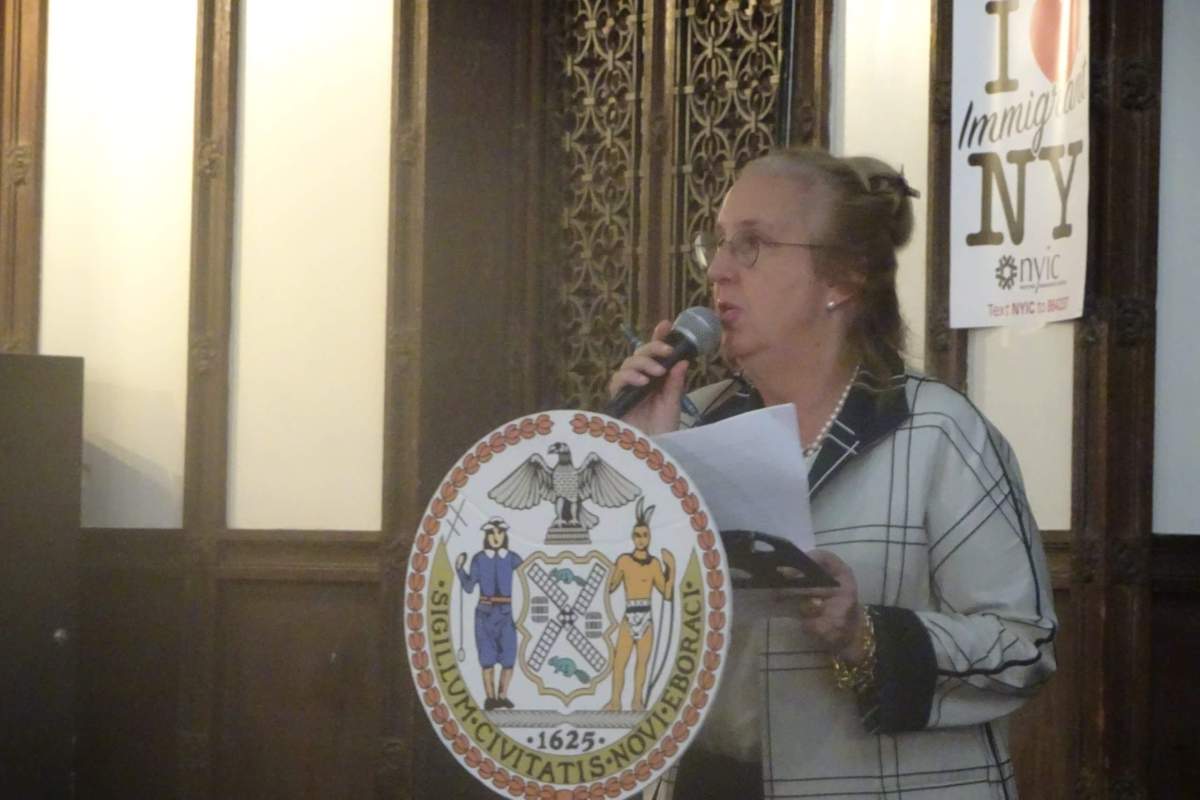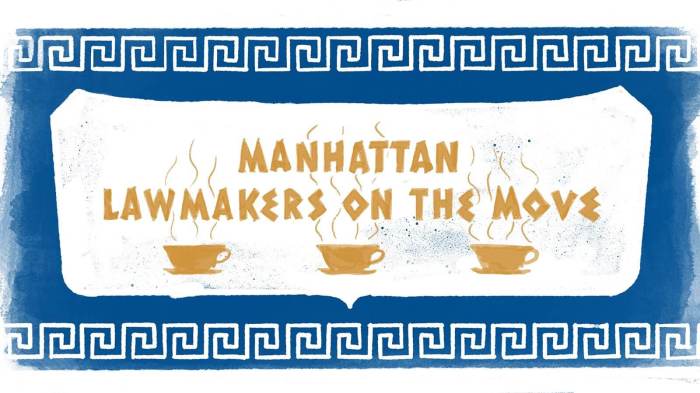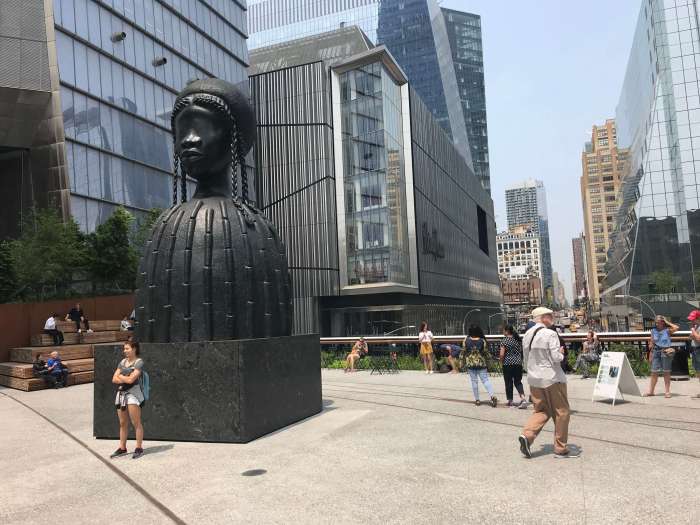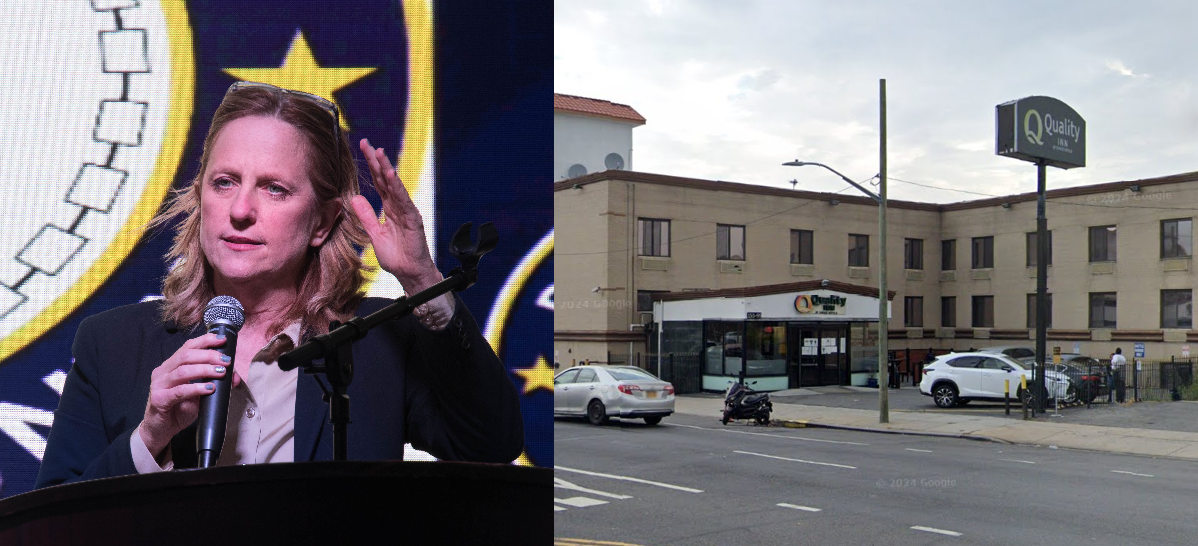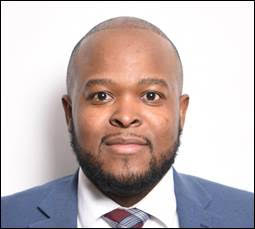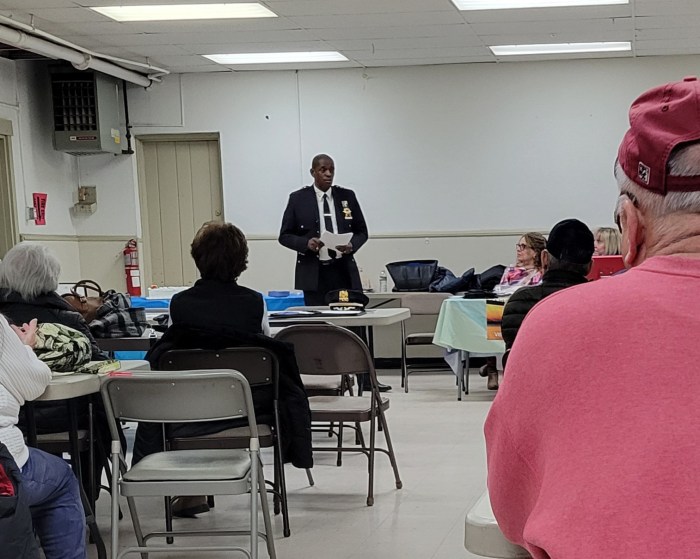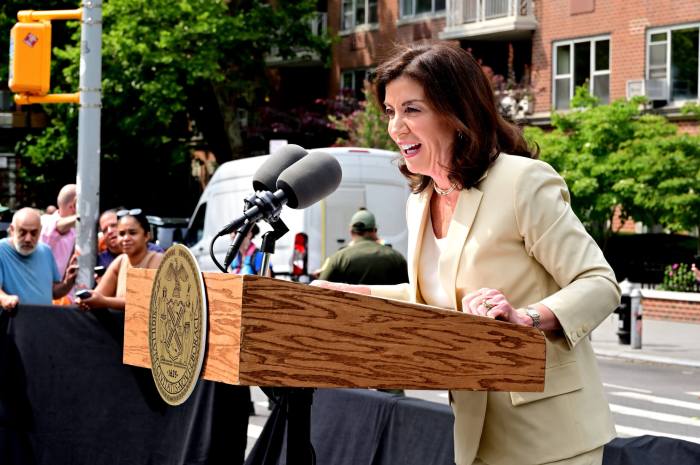On Oct. 15 – barely over a month from now – the Trump Administration’s new public charge rule will go into effect. If it goes unchallenged, it will inexorably change the landscape for immigrants seeking visas and green cards.
Thus, Manhattan Borough President Gale Brewer (D) felt it was the perfect time to brief her constituents on what will change and whether they have to worry.
“Public charge is not something that people know how to fight against,” said Brewer. “They know about healthcare, they know about immigration, but this issue does not have the kind of clarity that it should.”
Brewer held a town hall on the subject yesterday at the Cathedral Church of St. John the Divine, 1047 Amsterdam Ave. Also in attendance were Council Members Mark Levine (D-Manhattan Valley, Manhattanville), Ben Kallos (D-Yorkville, Lenox Hill) and Ydanis Rodriguez (D-Washington Heights, Inwood).
The electeds began by summing up their moral objections to the rule. The public charge rule, in brief, makes it easier to deny green cards and visas to immigrants who have received or are likely to need government aid. Currently, this only applies to those receiving cash assistance or institutionalization for long-term medical care. However, the change will expand the definition to include SNAP benefits, Medicaid and Section 8 housing.
Brewer went out of her way to rebut the notion that the law’s intention is to stop “freeloaders” from taking advantage of the system, as its advocates would have you believe. Rather, it’s about penalizing those whom the Trump Administration sees as undesirable.
“It’s cruel, and cruelty is the point,” said Brewer. “It’s not about immigrants taking advantage of public benefits. Hell no. Undocumented immigrants make up nearly a tenth of New York’s work force; thank goodness they’re here.”
Furthermore, Brewer and her peers argued that our immigrants are already suffering from the Trump Administration’s exclusionary policy and rhetoric. Mark Levine pointed to a rise in tuberculosis among immigrant populations after Trump took office.
“We’ve already seen the effects of the Trump era,” said Levine. “Undocumented workers are reluctant to access medical care because of fear of interacting with those institutions. The fear is not just a side effect; the fear is the goal of this insidious policy.”
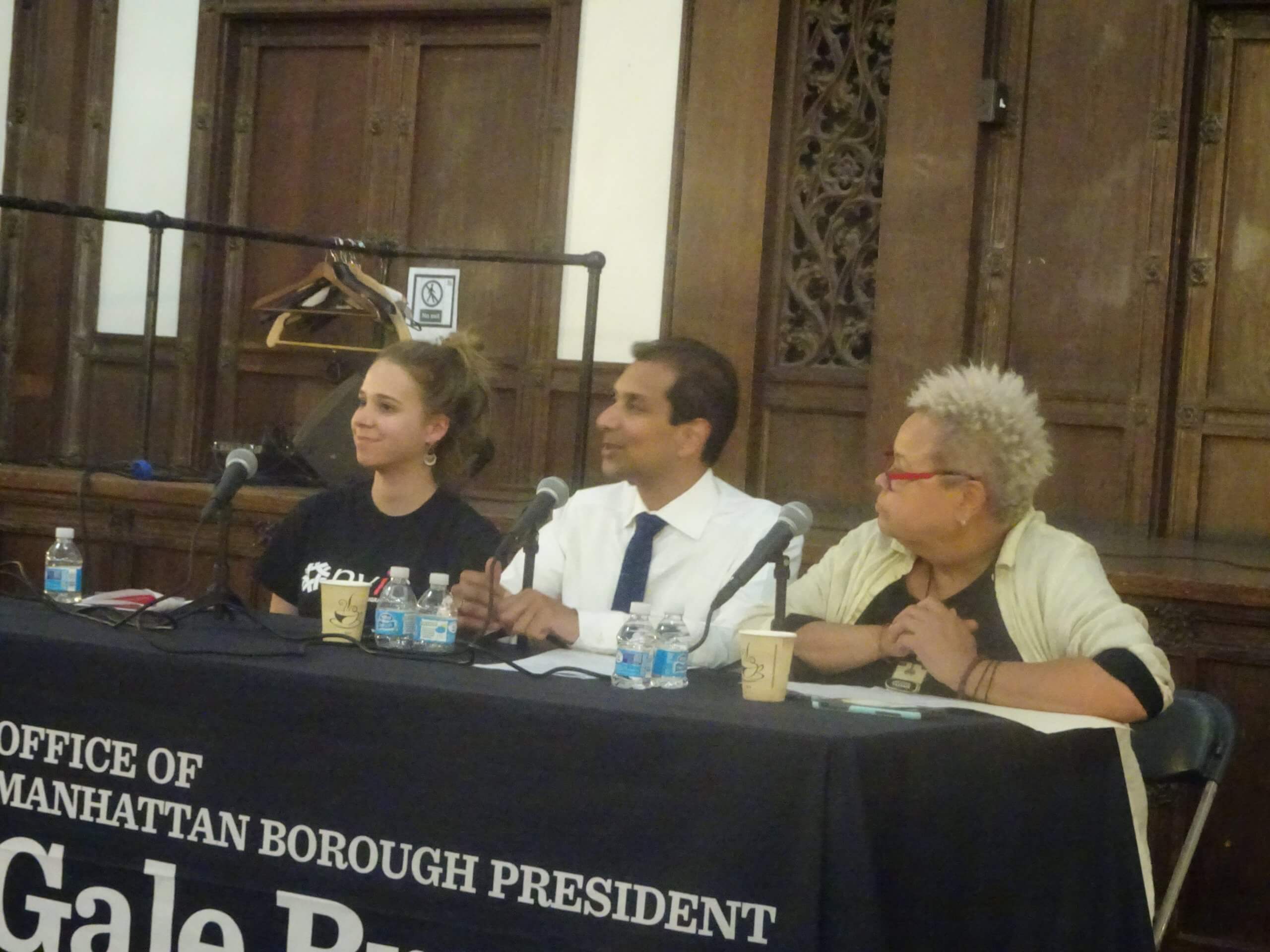
Afterwards, a panel of experts went over the details of the changes to the public charge rule. The panel consisted of Hasan Shafiqullah of the Legal Aid Society; Amanada Lugg, director of advocacy and LGBT programming at the African Services Committee; and Abbey Sussell, public charge fellow of the New York Immigration Coalition (NYIC).
As they explained, the rule only affects those who are applying for green cards or visas. It does not affect those who are applying for citizenship. Refugees, asylum seekers and victims of human trafficking are also exempt from the rule.
Furthermore, they said, using government benefits will not make you a public charge per se. The government will also look at factors such as family size, employment and work skills.
“It’s not just about benefits,” said Abbey Sussell. “It’s also about income, health, family size, and other metrics. Those are looked at as a whole, so just using benefits alone does not make you a public charge.”
At the same time, this doesn’t mean that immigrants don’t have cause for concern. The rule change, if it goes into effect, will still allow immigrants to be profiled for factors that weren’t considered before.
“It’s really targeted at family-based immigration,” said Hasan Shafiqullah. “It’s trying to make sure that we favor applicants whose family members are wealthy and who speak English – things that we never looked for in the past.”
Regardless, there was one key message the panelists wanted to hammer home; don’t panic. They noticed a trend of immigrants giving up their public benefits out of fear that they would qualify as a public charge. This, they said, was not the way to go, especially since the rule may change between now and Oct. 15. Since the Trump Administration announced the incoming change in August, 13 states have filed suit to challenge it.
“If you can’t improve your situation as it stands today, get healthy,” said Amanda Lugg. “Keep whatever medical benefits you are on. And when it is time for you to adjust your status, you will be in a much, much better position.”
Lugg also stressed the importance of seeking out legal guidance to discern whether or not the new law will target them.
“Speak with a qualified attorney before you do anything,” said Lugg. “Before you come off benefits, before you go on benefits, and before you consider finding anything to adjust your status, speak to an attorney.”
Ben Kallos concluded by thanking everyone who showed up. This, he said, was an issue that hit close to home for him, given his own ancestry.
“I just wanted to thank every single one of you for being here,” said Kallos. “My grandparents came here during World War II to escape anti-Semitism. My wife came here about 20 years ago to escape anti-Semitism in Russia. All of us have relied on public benefits to get settled. These benefits are just so integral, and it’s unbelievable how far the Trump Administration is willing to go to push a racist, xenophobic agenda.”



